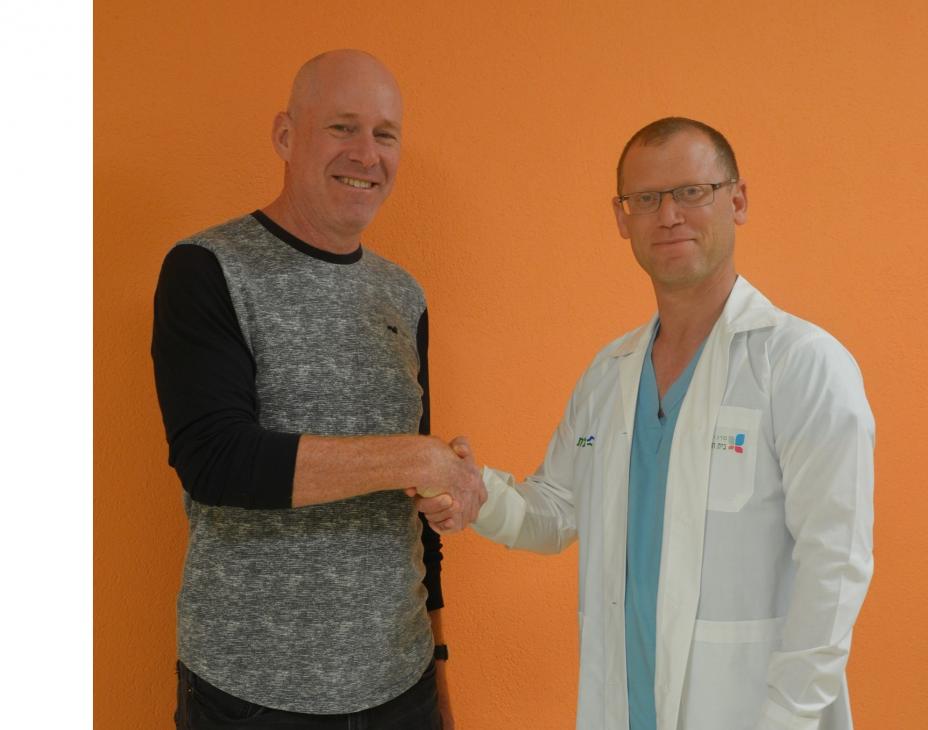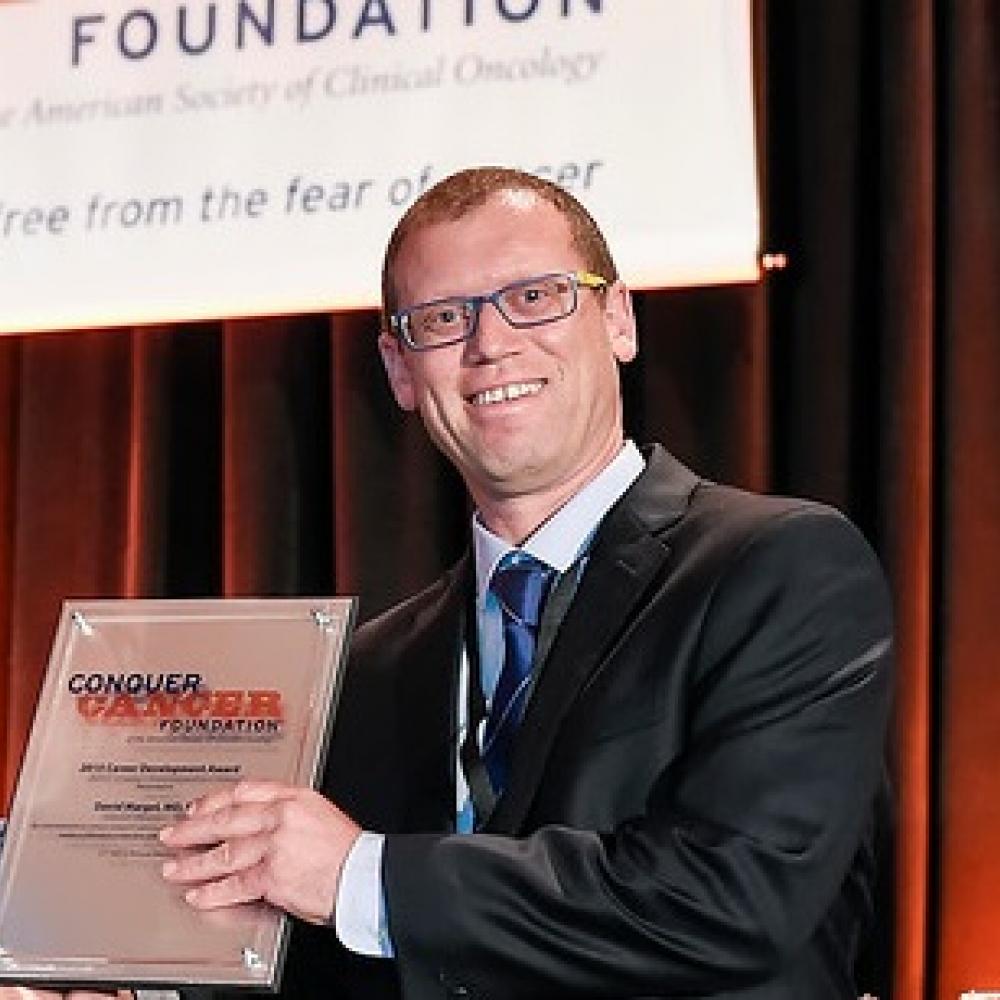These researchers dedicate their careers to finding new treatments and cures for people with cancer.

Research Improves Care
Uriya, age 49, visits Rabin Medical Center for a cancer screening. On the surface, he shows no signs of disease. However, results from a study by Dr. Margel will reveal Uriya is living with prostate cancer at an early, yet curable, stage.
Rabin Medical Center is dedicated to caring for men like Uriya with mutated BRCA genes.
While the effects of BRCA gene mutations on women are well known, the risks for men are often overlooked. Male carriers face heightened risk of developing an aggressive form of prostate cancer at an early age.
“Even within the BRCA community, men are treated as ‘carrying vectors’ rather than patients who need care,” Dr. Margel explains. “Before coming to our clinic, Uriya constantly feared he would succumb to cancer, similar to his father and other family members.”
“I knew that I was at risk,” says Uriya, “but no one offered guidance.”
Dr. Margel found that for men, standard screenings and regular physicals may not be enough to adequately detect the disease. “MRI can detect many more cancer cases. We are now adjusting our screening guidelines for prostate cancer in BRCA carriers,” he says.
Further studies are needed to better treat at-risk populations underrepresented in clinical trials. Donors make a tangible difference in the research needed to help patients like Uriya detect and conquer cancer before it grows and spreads.
“Funding from the CDA helped me establish and hire my research team, which now includes a PhD in molecular biology and three research assistants,” says Dr. Margel. “I was also able to establish the male BRCA clinic and create a one-of-a-kind biobank with over 4,000 samples from BRCA carriers.”
“Before, I was lost,” Uriya tells Dr. Margel. “After joining your clinic, I gained back control.”
